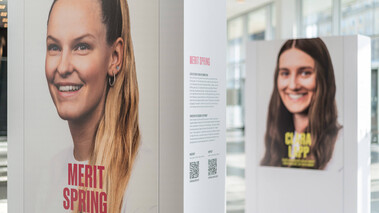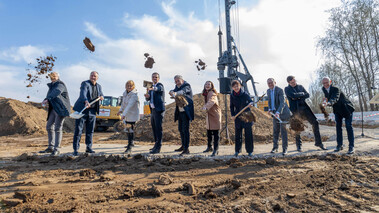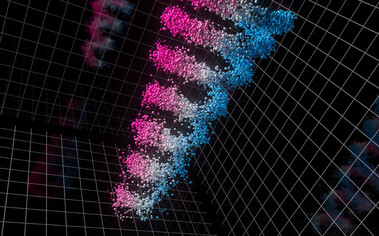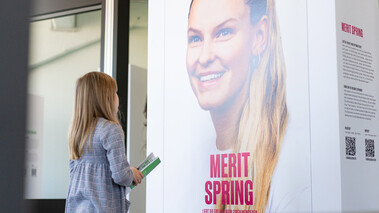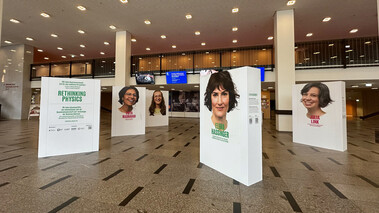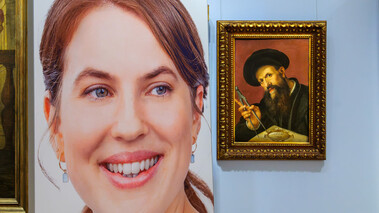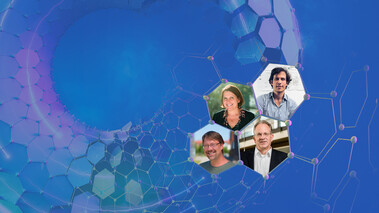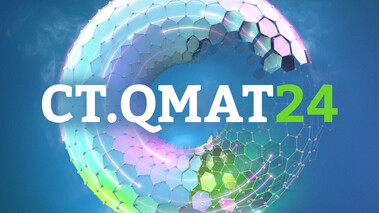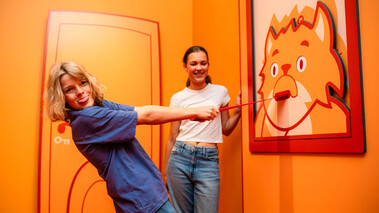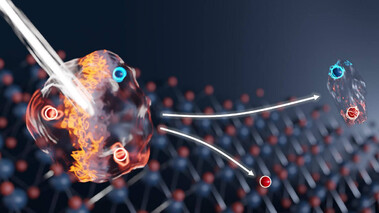News
-
![Mehrere Hände von jungen Menschen fassen sich in der Mitte als Symbol für Teamarbeit und Zusammenhalt.]()
12 May 2025
Outstanding Diversity! Physics Team Wins JMU Würzburg’s 2025 Gender Equality Award
more
-
![Zwei Personen im Escape-Room-Ambiente feiern lachend Geburtstag.]()
30 Apr 2025
Kitty Q – A Quantum Adventure: Dresden Escape Room Celebrates its First Birthday and Launches Mission 2.0
more
-
![Porträt von Merit Springer auf einem Poster, Teil der Ausstellung Rethinking Physics.]()
14 Apr 2025
07:00 pmQuantum Power on World Quantum Day: RETHINKING PHYSICS Exhibition Opens at Nuremberg Planetarium
more
-
![Gruppe von Personen mit Spaten bei einem symbolischen Spatenstich auf einem freien Gelände.]()
02 Apr 2025
Groundbreaking ceremony for new joint research facility of IFW Dresden and TU Dresden
more
-
![Künstlerische Visualisierung eines spiralartigen Quantentornados mit pink-blauen Partikeln.]()
08 Mar 2025
Quantum Tornadoes in Momentum Space: Würzburg-Dresden Research Team Delivers First Experimental Proof of a New Quantum Phenomenon
more
-
![Frau betrachtet das Porträt von Merit Springer auf einer Ausstellungswand mit Beschreibungstext.]()
07 Mar 2025
Quantum Power for International Women’s Day: Exhibition RETHINKING PHYSICS at Technische Sammlungen Dresden
more
-
![Innenansicht Eingangsbereich Kulturpalast mit Ausstellungstafeln und Porträts zur Initiative Rethinking Physics.]()
17 Jan 2025
05:30 pmExhibition “RETHINKING PHYSICS: A Century of Quantum Mechanics – Time for a Female Perspective!” Opens in Dresden
more
-
![Frau vor klassischem Porträtgemälde, beide Gesichter in Blickrichtung Kamera.]()
17 Jan 2025
05:30 pmExhibition “RETHINKING PHYSICS: A Century of Quantum Mechanics – Time for a Female Perspective!” Opens in Würzburg
more
-
![Zusammenschnitt aus vier Porträtfotos mit hexagonaler Molekülstruktur im Hintergrund als Vorschau-Collage.]()
25 Nov 2024
ct.qmat Celebrates Four Among World’s Most Cited Researchers
more
-
![Glänzendes, digitales Logo der Konferenz CT.QMAT24 mit wabenartigem Globus auf blauem Hintergrund.]()
22 Nov 2024
CT.QMAT24: International Conference Puts Dresden at the Forefront of Quantum Physics
more
-
![Zwei Frauen vor orangefarbener KatzeQ-Wandgrafik, ziehen an einer Tür im Escape-Room-Stil.]()
04 Oct 2024
Don’t delay—book now!: Quantum Adventures in Dresden During Fall Holidays at the Kitty Q Escape Room
more
-
![Wissenschaftliche Darstellung eines Trions mit roten und silbernen Teilchen, umgeben von Lichtbahnen.]()
27 Sept 2024
Temporarily apart: Research team succeeds in ultra-fast switching of tiny light sources
more




